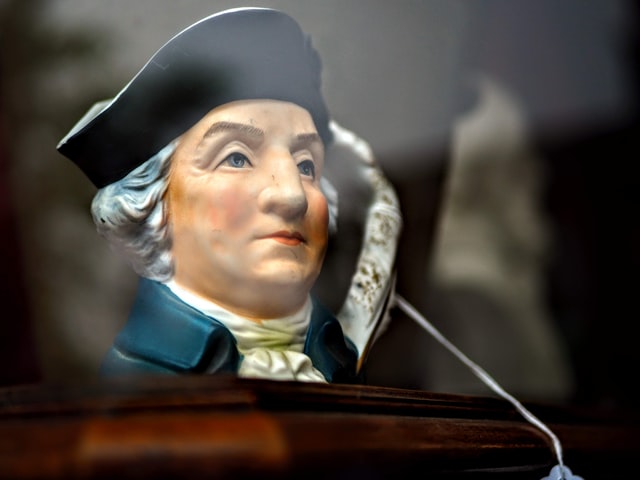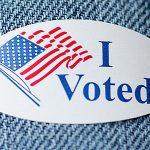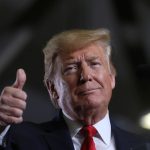Presidential campaigns haven’t all the time seemed how they do in 2020 – or how they did in 2016, earlier than the coronavirus pandemic modified all the pieces about conventions, political outreach, and voting.
The necessities have stayed the identical – nearly any natural-born citizen over the age of 35 can run for president. However, who decides who runs has modified considerably. So has campaigned.
These days, individuals must register as official candidates for president after they’ve raised US$5,000 towards the trouble. At that time, the Federal Election Fee asks them to declare their political celebration affiliation, which they’ll select even when the celebration management doesn’t need that particular person to run.
Celebration elites are nonetheless highly effective; however, in previous eras, they have been far more so.
The period of statesmen
When creating the presidency throughout the Constitutional Conference, most of the nation’s founders noticed George Washington as the best particular person to carry the workplace. Regardless of this consensus, that they had a peculiar downside.
They thought anybody who sought the votes of the individuals wished energy for the incorrect causes and would use that energy to undermine the federal government. For that cause, even Washington himself maintained a “guarded silence” on the subject to keep away from showing “vain-glorious,” admitting solely privately that he would function the nation’s first president if he were referred to as upon.
When mixed with the very actual concern that “these males who’ve overturned the liberties of republics” began “their profession by paying an obsequious courtroom to the individuals,” early candidates knew they needed to keep away from trying too anticipating energy.
Thomas Jefferson took this place to an excessive when he vowed by no means to serve in the public workplace once more after being the brand new nation’s first secretary of state. He found he can be on the poll in 1796 solely when his shut pal James Madison wrote a letter claiming he “must be making ready” himself for the presidential nomination. Jefferson got here in second that yr, changing into the vice-chairman; he received the highest job in 1800.
Till 1824, candidates remained reserved about campaigning for themselves. That yr, candidate Andrew Jackson stepped ahead, promising to control for the frequent man relatively than the celebration elites who had managed Washington for too lengthy. The turbulence within the lead-up to, throughout, and after the Civil Conflict left elections extra disorganized till the late 19th century when the period of the machine started.
The rise of the political machine
After Reconstruction resulted in 1877, American politics was a grimy enterprise. Celebration elites sat in smoke-filled rooms deciding whom they’d assist as a candidate and the way they’d cease others from successful the election.
As soon as in the workplace, members of each event used their place to offer others with patronage jobs and anticipated kickbacks as thanks. Celebration bosses often maintained management over these in energy, even demanding a say in who served within the positions that have been appointed by elected officers.
As New York Metropolis’s police commissioner and later governor of New York state, Theodore Roosevelt resisted the system a lot that an aggravated celebration boss strong-armed members of the Republican Celebration into providing the formidable politician the notoriously powerless publish of vice-chairman. The scheming backfired, nevertheless, when President William McKinley was assassinated in 1901. Roosevelt grew to become president and instituted a wide range of progressive reforms, like hiring for advantage relatively than favoritism, a few of which helped diminish the facility of celebration bosses.
The primary communication revolution
The invention of the radio quickly led to a watershed second for democratization. By this medium, presidents might communicate on to the residents, making an extra visceral connection between the nation’s chief and its individuals.
Looking forward to common content material, broadcasters gained entry to nominating conventions and offered radios by claiming the individuals might get an inside take a look at the method. With the addition of tv within the early 1950s, candidates began hiring advertisers to find out how one can “promote” themselves on to the individuals, relatively than going via the Celebration.
By 1968, when the Democratic Celebration ignored the outcomes of the primaries and nominated Hubert Humphrey for president, the rioting in Chicago reached a boiling level, resulting in reforms. The first elections grew to become extra influential, and the elites misplaced extra of their energy. In 1976, nevertheless, Jimmy Carter’s stunning win in Iowa triggered Democrats to claw some management again by creating superdelegates, people chosen by the Celebration who might give their vote to a candidate and doubtlessly overcome the outcomes of the primaries. These efforts labored comparatively nicely – until the creation of social media.
AP Picture / Jae C. Hong, Pool
The second communication revolution
Through the 2008 Democratic primary, virtually everybody assumed Hillary Clinton’s time had come. Political gamers and pundits alike anticipated individuals would vote accordingly; only a few took Barack Obama’s candidacy critically. They thought the self-proclaimed “skinny child with a humorous identify” would be taught the ropes and possibly get a Cupboard to publish.
As an alternative, Obama revolutionized campaigning through the use of the “great communication capability” of social media to unfold his message and recruit volunteers. Obama harnessed the power created by platforms designed to convey “buddies” collectively and permit them to share their pursuits amongst anybody of their community. When coupled along with his means to get a crowd to its toes – and an enjoyable media – Clinton and the Celebration backing her didn’t stand an opportunity: The individuals wished hope and alter.
The individuals shocked the elites as soon as once more in 2016. Donald Trump supplied a singular imaginative and prescient of a rustic in disrepair that wanted an outsider to return in and make America friendly once more.
Republican operators like Reince Priebus and Paul Ryan didn’t take him critically, nor did the media. Many believed Clinton would beat him handily.
As soon as once more, elites didn’t notice the facility of social media – this time to divide the nation. The highly effective algorithms utilized by varied media platforms dramatically elevated the quantity of radical content material individuals noticed.
Concurrently, Donald Trump fed the sensation of injustice amongst some within the nation, claiming he would work for the “forgotten women and men.” The sustained feeling of injustice amongst many teams and the violent actions deployed to handle them stays a component of the present election, the place as soon as once more a brash outsider (who can also be the incumbent) battles a revered celebration elder in good standing.
Every president leaves an everlasting mark on the workplace. The final two presidents have capitalized on the facility of the web to attach them to the individuals. How future presidents will use these instruments, and no matter new tools are but to return, is troublesome to foretell. It’s simple to see how mediums like Twitter and YouTube can preserve a connection and may convey small items of knowledge.
Additionally, it is doable to see the worth in making a neighborhood via social media to assist broadcast a political message via networks of supporters and their buddies. It’s troublesome, nevertheless, to suppose again upon the good speeches of America’s previous presidents and see how they may repackage these emotional moments into 280 characters.


